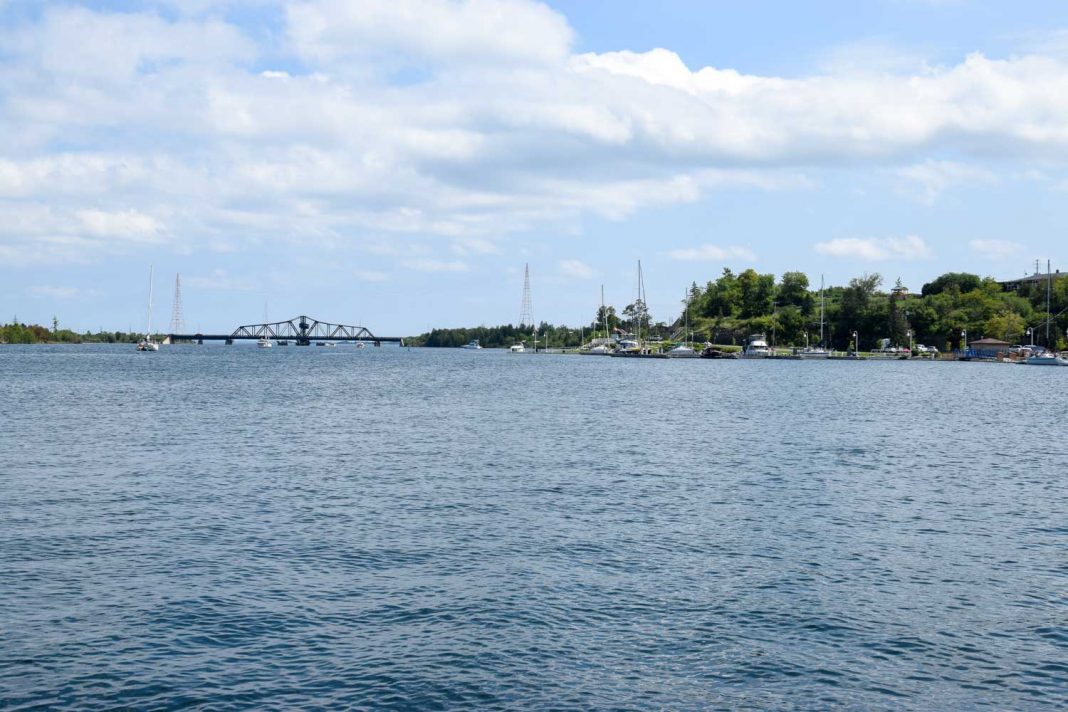EDITOR’S NOTE: This is the second installment in a series on climate change and its effect on recreational boating, and vice versa.
MANITOULIN – Recreational boaters have a long history of adapting to change and are likely to weather climate change with relative ease, said Stan Ferguson, long-time marina operator and current chair of the North Channel Marine Tourism Council. Marinas, on the other hand, are already experiencing difficulties and that is likely to increase.
Marinas and recreational boating are both affected by extremes of high and low water levels. Higher water levels over time means that swampy areas begin to get covered, and formerly visible rocks and sandbars will be submerged. While the Great Lakes have been experiencing extreme high water levels for several years, it is expected that water levels will generally fall and remain low. Increased evaporation due to higher summer tempers and less snow as winters become warmer are major factors.
For boaters with newer and more accurate electronic navigation systems, low water levels won’t affect them much, said Mr. Ferguson. Previously, navigation meant paper charts and users had to factor in how much the water was above or below chart datum. “If you’re not familiar with the area and come up here during high water you may pass over a rock that’s seven feet under the water,” he said. “The next time you come up the water’s lower by three or four feet. All of a sudden that rock is a shoal and that can cause a lot of damage.”
On-shore facilities have more cause for concern. Even now there are places on or around the North Channel that can’t open their marinas because of high water levels, Mr. Ferguson said. Some marinas are flooded. Others have damaged or missing docks. The French River area was hard hit last year and again this year. “It’s a mess,” he said. “There are marinas that can’t open yet because either they don’t have the funds or the wherewithal to open them because of high water levels or they don’t have the funds to repair them.”
One problem is spending funds without earning additional revenue to make up for those dollars. “Consider if you had a marina with 150 slips and you lose one-third of them to high water,” he said. “If you lose one-third to high water and make adjustments to the marina, you’re not gaining any revenue. All you’re doing is getting back to your original number of operating slips.”
Mr. Ferguson dealt with cyclical water levels for over 30 years at Harbor Vue Marina. “We were either putting up breakwalls and building up areas or dredging. It’s all money that’s spent on an existing facility that gains you nothing. When you dredge a harbour you haven’t increased a source of revenue, you are only maintaining what you have. It’s a huge expense to the industry,” he said.
“You build all this up to accommodate today’s high water and the next year the water drops. Now you have this huge infrastructure six feet out of the water,” he said.
This year the breakwall protecting the small craft basin in Kagawong was threatened by unexpected high water levels and had to be built up to protect the newly redeveloped harbour. Mr. Ferguson has personal experience with this. “When I had the marina, Harbor Vue, we built a breakwall under normal water levels. That entire breakwall is now maybe two feet out of the water,” he said. “I would never have dreamt when we built it that we’d see water this high.”
Another year when the water was historically low, they dredged the harbour. “In the main area they left a hump in the centre because they couldn’t reach it from either side with their equipment, saying that will never be a problem. It ended up right in the middle of the harbour because the water was going down so low. We figured it would be years before the levels came back up. We were so wrong!”
The timing of water level peaks is a new consideration, he said. “Water would normally peak in the summer and then go down. That’s not happening this year. It also peaked very early this year, largely due to runoff and precipitation.”
Climate change in general has led to a shift in the seasons, Mr. Ferguson believes. After several decades as a marina operator, as a marine tourism council member, and as a recreational boater, he has definitely seen changes. “We don’t see the springs up here that we used to. When we ran the marina there were lots of summers where June was wet, miserable and cold but it would warm up in July. August and September would be absolutely gorgeous.”
He remembers the middle of September having hotter days than the rest of the summer. “That’s another shift,” he said. “July weather this year was crazy hot, maybe historically hot. It was so hot we didn’t realize August was as well.”
He also pointed to changing precipitation patterns on the Island and increased precipitation when it does rain. There are no gentle downpours anymore, he noted. “Just a huge rain dump and then it’s gone.”
Another example he shared was the total calm on the lakes he saw this summer. “I’m on the water a lot. I’ve never seen that, where the lake is so flat but then there are these huge rolls that come up. There doesn’t seem to be much in between anymore.”
“It’s all changing. Currents, fishing, plant life,” he said. Recently his family spent time on the water at High Lake. “The water temperature was 85°F and I’ve never seen it that high in my life.”
He attributed that event to long, flat lays on the water. “Once the wind blows it stirs the water up and brings surface water temperature back to the 70s (°F). But when you talk about temperatures like that on the North Channel, what’s that doing to life in the water?”
Higher water temperatures can lead to toxic algal blooms. Overall hotter temperatures will lead to stronger and more frequent thunderstorms on the lakes. Both of these events are high risk factors for recreational boating and for marinas in particular.
The impacts of climate change are all around us whether people like it or not, said Mr. Ferguson. “Boating is just the tip of the iceberg but there a lot more boats on the water than there used to be compared to the 1960s and ‘70s. We’ve put additional pressure on the waterways just because of the number of people that boat.”
Boaters will adjust, he believes, but some marinas will not.






